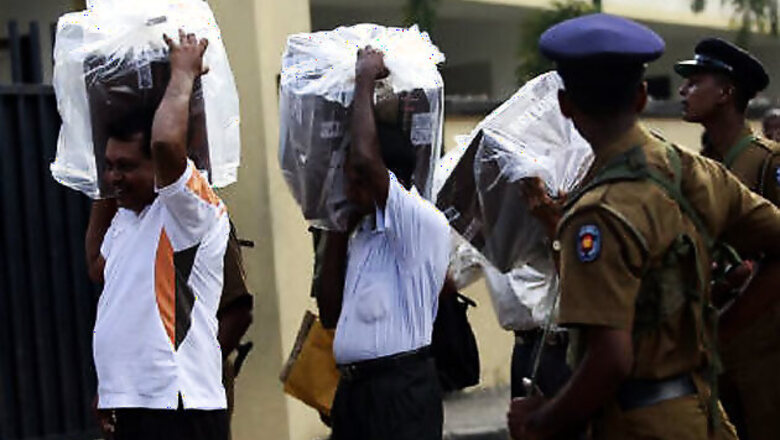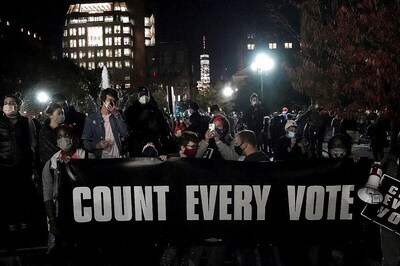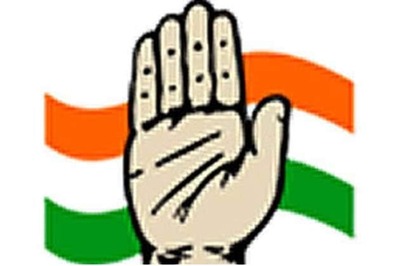
views
Colombo: Sri Lanka's ruling alliance took an early lead on Friday in parliamentary elections it will most likely win, but it was unclear whether it would reach the two-thirds majority needed to amend the Constitution.
President Mahinda Rajapaksa's United People's Freedom Alliance (UPFA) had won 11 of 15 seats so far decided in the 225-member Parliament and was leading in several others, election officials said.
They also said the results of 12 seats in the central Kandy district were likely to be delayed because a repoll has been ordered in one area after violence.
The poll on Thursday was the first since Rajapaksa declared victory in May in one of Asia's longest-running and bloodiest wars, defeating the separatist Tamil Tigers and returning the entire island to government control after 25 years.
The president has already turned the victory over the Tamil Tigers into a new six-year term, and he has banked on a resurgent economy and political momentum to give his UPFA a two-thirds legislative majority.
Friday's results will remove a final question mark for investors eyeing Sri Lanka as an upcoming frontier market, and provide clarity on Rajapaksa's plans for a $ 42 billion economy targeting 6.5 per cent growth this year.
The Colombo Stock Exchange extended gains into record territory yesterday, banking on an easy win for the ruling alliance, and is up 165 per cent since January 2009.
Bond dealers say demand for high-yield government securities should rise, having grown more attractive with upward pressure on the rupee currency.
Constitutional changes
Rajapaksa has not made public his intended constitutional amendments if his alliance were to get the required majority, save possibly creating a bicameral legislature and changing the electoral system.
The opposition had vowed to block him, saying it would threaten democracy by increasing his already vast powers. Some speculate he would change the charter to allow himself a third term when his expires in 2016.
Kusal Perera, a political analyst with the Centre for Social Democracy in Colombo, said the opposition's defeatist tone may have contributed to the low turnout.
"They were saying that the government was getting ready to manipulate the vote. That made the people think that there is no point," he told Reuters.
Rajapaksa, 64, was re-elected in January with a victory over retired General Sarath Fonseka, his former war ally whom the opposition backed after he split with the president.
He accused Rajapaksa of stealing his victory, but monitors noted no evidence of it.
After the vote, the government arrested Fonseka and charged him with politicking in uniform and improper procurement in two courts-martial. Though still in military custody, he ran for parliament as he proclaimed his innocence.



















Comments
0 comment